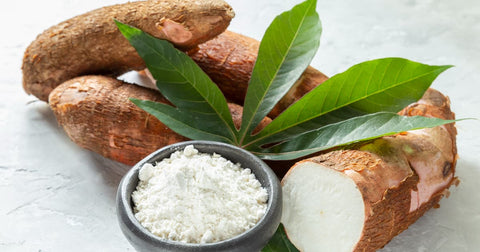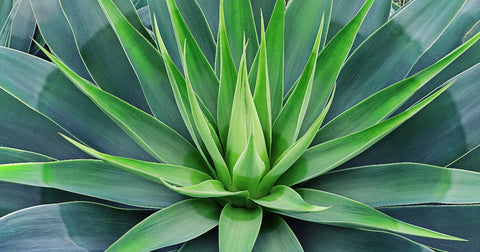Yucca root, also known as cassava or yuca, is a staple food in many tropical and subtropical regions worldwide. This versatile tuber is not only a culinary delight but also a source of numerous health benefits. If you're curious about incorporating yucca root into your diet, this article will explore its nutritional value, health advantages, and culinary uses.

What is Yucca? A Botanical Overview
What is yucca? It's a perennial shrub belonging to the Manihot esculenta species. The edible part is the root, which is a long, tuberous structure with a brown skin and white flesh.
Yuca Root: A Global Staple
Yuca root, or cassava, is a crucial source of carbohydrates for millions of people in Africa, South America, and Asia. It's adaptable to various growing conditions and provides a reliable food source.
Benefits of Cassava: A Nutritional Powerhouse
Benefits of cassava are plentiful, thanks to its rich nutrient profile:

-
Carbohydrates: A primary source of energy.
-
Fiber: Promotes digestive health and regularity.
-
Vitamin C: Supports immune function and collagen production.
-
Potassium: Helps regulate blood pressure.
-
Folate: Essential for cell growth and development.
-
Manganese: Plays a role in bone formation and metabolism.
Yuca Nutrition Facts: A Detailed Look
Yuca nutrition facts reveal that it's a calorie-dense food, primarily due to its carbohydrate content. It's low in fat and protein but provides a good source of fiber and essential vitamins and minerals.
Is Yuca Good for You? Health Advantages
Is yuca good for you? Yes, it can be a healthy addition to your diet when consumed in moderation and prepared properly.
-
Energy Source: Provides sustained energy due to its complex carbohydrate content.
-
Digestive Health: High fiber content promotes regular bowel movements.
-
Immune Support: Vitamin C strengthens the immune system.
-
Blood Pressure Regulation: Potassium helps maintain healthy blood pressure levels.
Benefits of Cassava Sexually: Potential Libido Boost
While scientific research is limited, some traditional uses suggest potential benefits of cassava sexually. Certain cultures believe it can enhance libido and improve sexual function. This may be related to its energy-boosting properties and overall nutritional value. More research is needed to confirm these claims.
Preparing Yucca Root: Culinary Versatility
Yucca root can be prepared in numerous ways:

-
Boiling: Boiled yucca is a common preparation method.
-
Frying: Fried yucca, similar to French fries, is a popular snack.
-
Baking: Baked yucca can be a healthy alternative to fried options.
-
Mashing: Mashed yucca can be used as a side dish or ingredient in other recipes.
-
Flour: Yucca flour (cassava flour) is used to make breads and other baked goods.
Important Note: Proper Preparation is Crucial
Raw yucca root contains cyanogenic glycosides, which can release cyanide when consumed. Proper preparation, such as peeling, soaking, and cooking, is essential to remove these compounds and make yucca safe for consumption.
Food Intolerance and Yucca Root
While yucca root is generally safe, some individuals may experience digestive issues due to food intolerances or sensitivities.
Food Intolerance Test Kit: Identifying Triggers
If you suspect a food intolerance, a food intolerance test kit can help identify specific triggers. By eliminating or limiting these foods, you can improve your digestive health and overall well-being.

Key Takeaways:
-
Yucca root, or cassava, is a versatile and nutritious tuber with various health benefits.
-
Proper preparation is crucial to remove potentially harmful compounds.
-
Yucca root can be enjoyed in numerous ways, from boiling to frying.
-
If you experience digestive issues, consider a food intolerance test.
Remember, this article is intended for informational purposes only and should not be considered a substitute for professional medical advice. If you have any concerns about your health or dietary choices, consult a qualified healthcare professional.
Frequently Asked Questions:
1. Is yucca root the same as the yucca plant used in landscaping?
No, they are different. The yucca root discussed in this article is the edible tuber from the Manihot esculenta plant (cassava), while the yucca plant used in landscaping belongs to the Yucca genus and is not typically eaten.
2. How do I safely prepare yucca root to remove cyanide compounds?
Proper preparation is crucial. Peel the yucca root thoroughly, soak it in water for several hours, and then cook it thoroughly by boiling, baking, or frying. This process significantly reduces the cyanide content.
3. Can yucca root help with weight loss?
While yucca root is a good source of fiber, which can promote satiety, it's also high in carbohydrates. Therefore, it's essential to consume it in moderation as part of a balanced diet.
4. Is cassava flour gluten-free?
Yes, cassava flour (also known as yuca flour) is naturally gluten-free, making it a suitable alternative for people with celiac disease or gluten intolerance.
5. Are there any potential side effects of eating yucca root?
If not prepared properly, raw yucca root can cause cyanide poisoning. Even when cooked, excessive consumption might cause digestive discomfort in some individuals. If you have any concerns, consult a healthcare professional.


.png?v=1737390083)
.png?v=1737187409)

